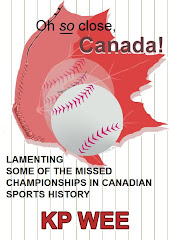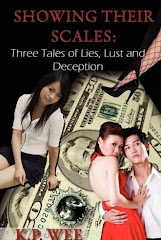The issue here has been magnified in 2007-08 when Toronto's Mats Sundin repeatedly refused to waive his no-trade clause (an announcement which came out on Sunday, two days prior to the trade deadline), and interim general manager Cliff Fletcher has been forced to hang on to the Maple Leafs' captain instead of dealing him for prospects.
The Leafs have been in the midst of a non-playff campaign, and have been floundering around 14th place in the 15-team Eastern Conference for much of February--the weeks leading up to the Feb. 26th trade deadline.
The Toronto media, for two months, had wanted Sundin traded so that the Maple Leafs could rebuild for the upcoming seasons.
Sundin, however, stating on Sunday that he didn't believe in the "rental player" concept, wanted to remain a Leaf and did not waive the no-trade clause.
Sundin, who had never played on a Stanley Cup winner, reportedly had drawn interest from contenders like Detroit (who had the best record in the NHL), Anaheim (defending champion), Ottawa (who had been the top seed in the East until trade deadline weekend), Montreal, and San Jose.
So, the debate here is, should a long-time star be able to pull this off, and hamper the team's rebuilding plans?
Sundin is 37, and the Leafs are facing the prospects of missing the playoffs for the third straight year, a first in franchise history. What good would hanging onto Sundin do for the Leafs?
One thing to consider is that Sundin has never led the Leafs to a Stanley Cup Final in his 13 seasons with the club.
But what if a guy has led his team to a championship or two? Should he be allowed to pull off the same stunt?
My take on this is that no one player is bigger than the team.
If the player really wants what's good for the team and respects the organization, shouldn't he be willing to accept a trade so that 1) he could go to a contender and have a shot at a championship, 2) the club could rebuild with young players?
The other side to consider is that Sundin has a no-trade clause, and any player, for that matter, who has veto power, could choose to exercise it. No one forced management to dole out that kind of agreement. So again, it's not as though the player is holding the team hostage. He is simply exercising his right, in this case, to remain with the club.
There is a difference between vetoing a trade because you want to be traded to a better team, and vetoing it because you truly want to remain with the club and finish the season--and perhaps your career--there.
In Sundin's case, it seemed it was the latter.
Does this make it right?
Well, my contention is that if a player truly wants what's best for the club, then accept the trade. It might help the team, and who knows, if he is a free-agent to-be, he may be able to negotiate with the original club and come back for the following season.
After all, the reason the team is trying to deal the player must be due to the fact that it is struggling and likely not going to make the playoffs. In theory, the team might get a high draft (Toronto fans want Steven Stamkos) pick and also reap benefits by dealing away the star player and get some prospects at the same time.
Isn't that a win-win situation?
Those who say that Sundin--or any player in that position--has "earned the right" to dictate what he wants after spending that many years
in the organization, should again be reminded: No one player is bigger than the team.
Players do not manage; they play.
I will say this: Sundin showed that during his tenure in the Leafs organization, he was a player with integrity and class. Sundin should be respected for his desire to finish the season with his team as opposed to agreeing to be a rental player and chase championships for his own glory--unlike, say, Ray Bourque, who left Boston to win that Stanley Cup.
Sundin deserved respect from all sports fans--that much I agree.
However, all that aside, he should have agreed to be traded for the good of the team--that's my take on this whole issue.
"Showing Their Scales" and "The Hockey Farmer"
We are pleased to introduce the works of local B.C. authors KP Wee and Farhan Devji to you:
"Showing Their Scales" contains three tales of lies, lust, and deception. These are short novels which deal with betrayal and revenge, with three main male characters and how they end up hurting the women in their lives.
**Catch an episode of BlogTalkRadio here with KP's interview on his books, recorded Dec 29, 2008.**
"The Hockey Farmer" is a story about Logan Watt, who hails from Cochrane, Alberta, and has to decide whether to rehabilitate the legendary family farm or pursue an unlikely career in professional hockey. The story also shifts to Vancouver and contains numerous Vancouver Canucks references.
Help support a pair of B.C. authors by picking up your own copies today!
-- "The Hockey Farmer" can be purchased here,
while "Showing Their Scales" can be bought here. --
"Showing Their Scales" contains three tales of lies, lust, and deception. These are short novels which deal with betrayal and revenge, with three main male characters and how they end up hurting the women in their lives.
**Catch an episode of BlogTalkRadio here with KP's interview on his books, recorded Dec 29, 2008.**
"The Hockey Farmer" is a story about Logan Watt, who hails from Cochrane, Alberta, and has to decide whether to rehabilitate the legendary family farm or pursue an unlikely career in professional hockey. The story also shifts to Vancouver and contains numerous Vancouver Canucks references.
Help support a pair of B.C. authors by picking up your own copies today!
-- "The Hockey Farmer" can be purchased here,
while "Showing Their Scales" can be bought here. --
The Hockey Farmer / Showing Their Scales

Subscribe to:
Post Comments (Atom)
Brief Resume Highlights
Writing Experience
- Bleacher Report: contribute articles on the Vancouver Canucks, Boston sports, hockey, and baseball at least three times a week (2007-Present); edit sports-related articles from other posters (2008-Present)
- UCL: developed Career Planning curriculum (2007); consulted on for other curricula issues (2005-Present)
- Consumer Research: submitted unsolicited proposals for improvements on company operations (2005)
- B.U.D. College: developed Grammar curriculum consisting of five levels (2004); edited curricula for other courses (2004)
- KGIC: developed Career Planning curriculum proposal for Surrey campus (2004)
Writing Accomplishments
- Named Bleacher Report Bruins Community Leader (2008)
- Bleacher Report: contribute articles on the Vancouver Canucks, Boston sports, hockey, and baseball at least three times a week (2007-Present); edit sports-related articles from other posters (2008-Present)
- UCL: developed Career Planning curriculum (2007); consulted on for other curricula issues (2005-Present)
- Consumer Research: submitted unsolicited proposals for improvements on company operations (2005)
- B.U.D. College: developed Grammar curriculum consisting of five levels (2004); edited curricula for other courses (2004)
- KGIC: developed Career Planning curriculum proposal for Surrey campus (2004)
Writing Accomplishments
- Named Bleacher Report Bruins Community Leader (2008)




No comments:
Post a Comment